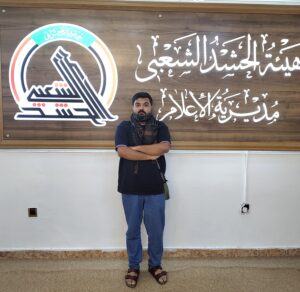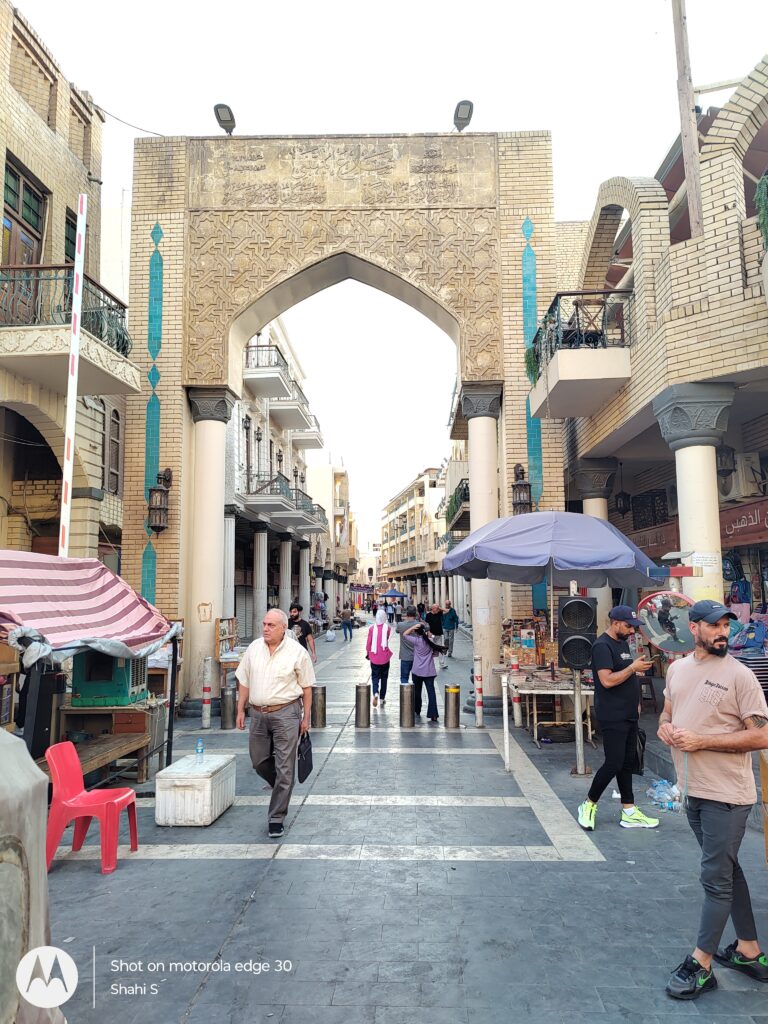The country has picked up the pieces and is raring to go.
Saurabh Kumar Shahi
In the autumn of 2016, the Islamic State (Daesh) came perilously close to the city of Karbala. Well, at least their presence became ominous. While physically they were still over a hundred kilometres away, they were close enough to attack and kill Shiite pilgrims coming to the twin cities of Najaf and Karbala for the annual Arbaeen commemoration. While those coming from Shiite heartlands were relatively safer, those trying to cross the Sunni-dominated triangle of Northern Baghdad, Ramadi and Tikrit were particularly exposed to potentially fatal danger. However, people just poured in as if there was no Daesh. A bewildered reporter representing a channel from the West asked a frail Iranian Shiite woman travelling the distance from Najaf to Karbala whether she was afraid of attack and she replied: “Even if it rains Daesh, we will come for Arbaeen. What to say of one Daesh!” The answer in itself encapsulated the importance of Arbaeen among Shiites.
Arbaeen in Arabic means 40. It is the commemoration of the death of Imam Hussein and his entourage that happened in the month of Muharram fourteen centuries ago. While Ashura is commemorated on 10th Muharram, Arbaeen is done 40 days later. It is a powerful form of expression and is often political as well. This is why the history of its commemoration in Iraq is chequered with some or the other caliph or rulers outlawing it at different historical points. Saddam Hussein, no friend of the Shiites, banned it almost for the entirety of his reign. Those attempting it were at best put in jail and at worst killed or maimed. After the fall of Saddam, it is as if a floodgate was opened. Shiites, Sufi Sunnis and people from other religions come in their millions to pay their homage. This year, for example, over 22 million people officially entered the city of Karbala to pay homage. The unofficial number was closer to 25 million.
So why is it that the fundamentalist Muslims and secular Baathists were so against it? After all, commemoration of such events isn’t exclusive to Shiites. To start with, it was an attempt to make Shiites invisible in the global scheme of things. Since you cannot make invisible 25 million people walking the road between Najaf and Karbala, or their ideology, they thought it prudent to not let the show happen at all. The idea is to make those not in the know believe that Islam is a monolith.
This works for the Islamophobes as well. Most of the people outside of the Islamic world don’t even know that the majority of those dying at the hands of terrorist groups like Islamic State, as well as fighting them, are also Muslims. And no one does it better than al Hashd al Shaabi of Iraq (Popular Mobilisation Forces or PMF). It is as if some forces deliberately don’t want people to notice the politico-ideological links between the people walking the Arbaeen walk and those fighting the terrorist groups. The resumption of Arbaeen has provided an ideological pillar to those Iraqis who want to coalesce against the ideology of Takfir, and this includes Shiites, Sunnis, Christians and whatnot. Exactly like the PMF umbrella group that has Shiite, Sunni and Christian militias joining ranks to fight against the Islamic State on the call of Shiite Marja from Najaf, Ayatollah Sistani. On the other end, Ayatollah Khamenei from Iran, and equally powerful Marja, asked the Revolutionary Guard to chip in and they did.

While the threat of takfiri attacks has gone down substantially, it has not dipped to zero. It shall never dip to zero. Militias of al Hashd al Shaabi after years of effort have managed to reach a point where any big disruption is thwarted at the level of intelligence itself so that one is not required to pull out the guns or the gurney.
Sitting at his office in Baghdad, Mohanad Njim al-Eqabi, one of the commanders and the chief spokesperson of al Hashd al Shaabi understands this. While his infectious smile hides it, one cannot help but notice a sigh of relief on his face and in his voice as the festival concludes without any incident. On his tables are two photos and just two of them. It is not of his wife or children but of two commanders: General Qasem Solemani and Commander Mahdi al-Muhandes, both killed by America.
Al-Eqabi is aware of the enormity of the job that has befallen his militia. How do you ensure a fool-proof arrangement when you have to deal with 25 million people visiting from over six dozen countries? What makes it more difficult is the popular nature of the festival. For 10 days, it is the Iraqi people who board, lodge and do everything for the pilgrims. Such is the fervour that one journalist covering the festival this year quipped that it appears as if more people are serving the pilgrims than the pilgrims themselves.
However, this also means that the government takes a backseat and becomes invisible for the entirety of the festival. PMF, a product of the same popular fervour, replaces the regular units of the Iraqi Armed Forces and takes command of the security. Since the threat cannot be eliminated in real-time considering the volume of people making the pilgrimage, one has to locate and weed out the threat before it comes to bear. Doing this requires seamless collaboration between Iranian and Iraqi intelligence services. Arbaeen, thus, is also a good example of a capacity-building program. Regular units of Iraqi Forces and other government departments can watch and learn from their counterparts how to do things effectively.
“We have managed to break the momentum of the Islamic State in that it cannot mount an effective offensive anywhere in Iraq but for some of the desolated places on the Iraq-Syria border. However, the sleeper cells, inherent to their nature, are always a threat,” says al-Eqabi. “However what we have managed to do is to locate and destroy these cells before they even start planning a specific action.”

The rapprochement between Iran and Saudi Arabia, two powers vying for influence inside the country, has also generated much excitement here. Locals believe that it has the potential to give a new life to the moribund political process here. They also draw pride that it was initially Baghdad that initiated this rapprochement which Beijing later managed to bring to fruition. However, many suggest caution. “Everyone is happy over this deal here, however, we must not throw caution to the wind. We should always remember that this is not in the interest of the Americans and knowing them they will go to whatever length to sabotage it. We have our eyes and ears open to thwart them,” warns al-Eqabi.
Otherwise, too, the situation in Iraq has stabilised. There are more people in markets and cafes and there is a sense of relative calm. At the iconic al-Mutanabbi book street, young and old throng the book stalls, something that appeared impossible just a few years ago. At the end of the street, inside the iconic al Shabandar café, the stoic figure of its owner who once lost three of his sons and two grandsons in a VBIED Blast that ripped through his café and the book market killing scores, gives hope. To anyone new to his café, he points towards the photos of his martyred progeny hanging on the wall and nods as regulars fill up the table over Arabic coffee and sheesha. This is a definite turnaround and in more ways than one, it is a microcosm of today’s Iraq. The Iraq that has picked up the pieces and is raring to go.
Saurabh Kumar Shahi has covered The Greater Middle East for over 15 years and has reported from Kabul, Peshawar, Baghdad, Aleppo, Damascus, Beirut, and Jerusalem among other places.


